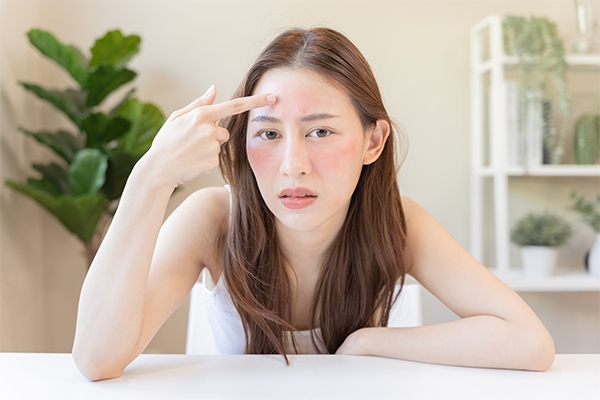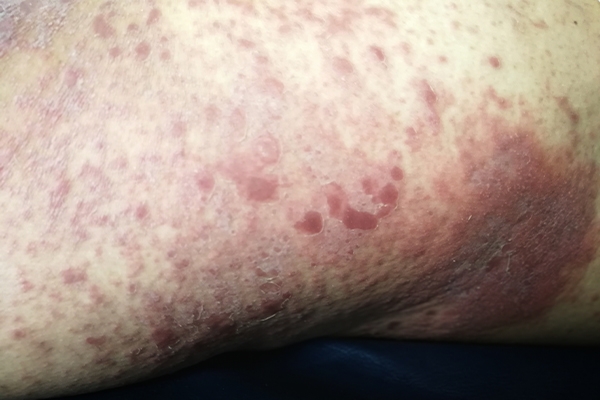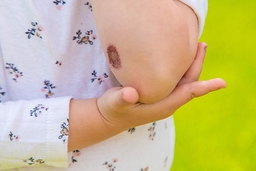Stevens-Johnson Syndrome Explained: Symptoms, Treatment, and When to Seek Help

Ever heard of a rash that causes your skin to peel, like a severe burn, after taking medication? It’s not just a typical allergic reaction. It could be Stevens-Johnson Syndrome (SJS), a serious and potentially life-threatening response to certain medications or infections. While rare, this condition can affect anyone and often strikes without warning.
What is Stevens-Johnson Syndrome?
Stevens-Johnson Syndrome (SJS) is a rare but serious disorder that affects the skin and mucous membranes. It’s usually a severe reaction to medications or infections.
The symptoms often begin with flu-like signs and progress into a painful rash, blisters, and eventually skin peeling. It can also affect the eyes, mouth, genitals, and other areas of the body.
Recovery from SJS can take weeks or even months, depending on the severity. Prompt medical treatment is crucial to prevent serious complications.
Who’s at risk of developing SJS?
SJS can occur in anyone, but it’s more commonly seen in:
- Children and young adults under 30.
- People taking multiple medications.
- Women are statistically more likely to develop SJS than men.
Common causes of SJS:
- In children, infections, especially pneumonia.
- In adults, reactions to certain medications such as antibiotics, anti-seizure drugs, and pain relievers.
Symptoms of Stevens-Johnson Syndrome

Early symptoms of SJS often resemble the flu and gradually progress into severe skin and mucous membrane reactions.
Common signs and symptoms include:
- Fever and body aches
- Painful skin
- Rapidly spreading red rash
- Blisters and sores on the skin and mucous membranes (such as the mouth, throat, eyes, genitals, and anus)
- Skin peeling
- Difficulty opening the mouth or eyes due to pain and swelling
- Painful urination caused by irritation of the urinary tract lining
Treatment and care
Patients with SJS typically require hospitalization. Treatment focuses on:
- Eliminating the cause
The first step is to stop the medication or treat the infection that triggered the reaction. - Fluid and nutritional support
Since the damaged skin loses a significant amount of fluid and protein, patients often receive IV fluids and nutrition via feeding tubes. - Wound care
Damaged skin is gently cleaned and covered with special dressings to prevent infection. - Eye care
If the eyes are affected, lubricating eye drops and ointments are used to prevent dryness and further damage to the eyes.
Hospital stays can last from 2 to 4 weeks or longer, depending on the severity. Even after discharge, long-term follow-up and recovery are usually needed.
Risk of complications
Without prompt treatment, SJS can lead to serious complications, including:
- Dehydration: Mouth and throat sores make eating and drinking difficult, and damaged skin loses a significant amount of fluid.
- Infection and sepsis: Open skin wounds increase the risk of bacterial infections entering the bloodstream.
- Eye problems: These include dry eyes, inflammation, or corneal damage that may lead to permanent vision issues.
- Breathing difficulties: If the lungs are involved, SJS can cause shortness of breath or even respiratory failure.
- Permanent scarring: Includes skin discoloration, abnormal nail growth, and hair loss (alopecia).
Recovery
Recovery varies from person to person. In most cases, new skin begins to grow within a few weeks; however, long-term effects may persist for much longer.
Possible chronic complications include:
- Skin: Itching, dryness, discoloration.
- Eyes: Chronic irritation, sensitivity to light (photophobia), and vision problems.
- Excessive sweating.
- Respiratory issues, such as asthma or chronic obstructive pulmonary disease (COPD).
- Nail abnormalities.
- Hair loss.
- Dryness in the mouth, eyes, and reproductive organs.
- Altered sense of taste and chronic fatigue.
When to seek medical attention
Seek immediate medical care if you experience any of the following:
- A rapidly spreading rash after taking medication
- Blisters in the mouth, eyes, or genital area
- Skin peeling accompanied by a high fever
The earlier SJS is recognized and treated, the better the chances of recovery without lasting complications.
Stevens-Johnson Syndrome is a serious condition that should never be ignored. Recognizing the early signs and seeking prompt medical attention can save lives and reduce the risk of long-term complications.
If you or a loved one has recently taken medication and begins experiencing suspicious symptoms, don’t wait—get checked immediately.
Visit GWS Medika, a trusted health clinic in Jakarta, if you notice any of the symptoms mentioned above.



